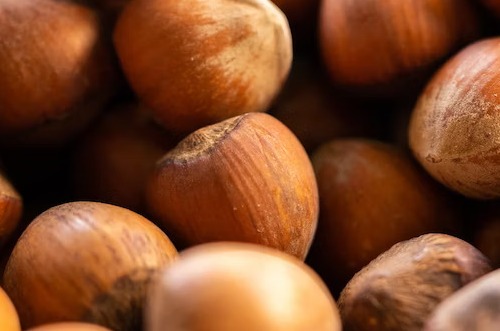W34: Hazelnut Update

In W34 in the hazelnut landscape, the President of the Turkish Exporters Assembly (TIM) reported that it is aiming to increase food and agricultural exports from USD 27 billion in 2022 to USD 50 billion by 2028. In addition, the president highlighted the significance of turning Turkey's long-standing experience, diverse products, and advanced technology-driven industrial infrastructure into an opportunity amid increasing global demand for food and agricultural products due to climate change. The hazelnut industry is particularly important, with Turkey producing about 70% of the world's hazelnuts. The ongoing emphasis is on increasing production efficiency and value-added processing. The Turkish government and relevant ministries aim to support the food and agriculture sectors to enhance export growth and address global challenges.
Over the last decade, Turkey has contributed USD 20.22 billion in foreign exchange from hazelnut exports, totaling 2.77 billion kilograms (kg). The peak export occurred in the 2014/15 season, reaching USD 2.82 billion. While exports span almost 20 countries, Germany and Italy are major recipients. In 2022, multiple countries received 313.57 million kg, generating USD 1.75 billion in foreign currency. The Eastern Black Sea Exporters' Association (DKİB) Vice Chairman highlighted the importance of maintaining market share amidst declining production and stressed the need for transparency in hazelnut transactions to avoid speculations. In addition, the Vice Chairman of the Board discussed the Turkish hazelnut harvest and market dynamics and estimated the 2023 hazelnut harvest to be around 765 thousand tons, with potential decreases due to seasonal factors.
Lastly, the Spanish hazelnut harvest faces lower production due to drought and lack of irrigation, resulting in smaller-sized hazelnuts. The situation varies significantly across geographical areas, making it challenging to predict the final production. Heat has caused hazelnut trees to yield less, particularly affecting regions that rely on reservoirs for irrigation. The heat stress has led to water scarcity, impacting hazelnut quality and tree health. Farmers with irrigation systems have seen better results in their harvest. The Department of Climate Action made an announcement about an aid package of USD 30.26 million (EUR 28 million) to counter the effects of drought, particularly in the dried fruit sector, including hazelnuts.





